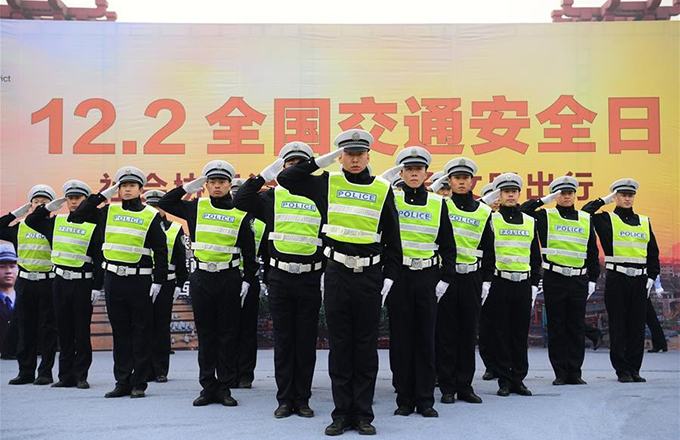One Belt One Road: the turning point for the recovery of Greek economy?
One Belt One Road perhaps is China’s most ambitious initiative. Its purpose is to facilitate the trade, by reviving the Old Silk Road, both at Land and at Sea. Here we have to mention that the Asian Investment and Infrastructure Bank (AIIB), a multilateral development bank, which has its headquarters in Beijing aims to actively support the building of infrastructure in the Asia-Pacific region. For the countries that are going to be involved, it will be a unique opportunity as the benefits will be versatile. For example, there will be enormous investments in infrastructures such as, roads, ports, storage facilities, railways, airports etc. Furthermore, it will be easier for the participating countries to export their products into markets that did not have access before or that access was limited because of the interference of other factors. In other words, these countries can see a major enhancement in their national economy.
As far as Greece is concerned, although still not an AIIB member, this could be the perfect moment to maximize the potential of this project, in order to revive its stagnated national economy. Below we will explain the reasons why we support this argument. First of all, during the last decade and especially after the Athens Olympics in 2004, the bilateral relationships between China and Greece have only been moving upwards. 5,6% of Greece’s total imports come from China. From Greek side, many shipping tycoons have China as their first choice, when they place orders for building new ships. The huge number of orders is also encouraged by Chinese banks, which provide loans with favorable rates and conditions, as part of a memorandum of economic cooperation, signed back in 2014 between the two countries. Here it is worth mentioning that, the Greek fleet is the largest in the world and has contributed to the development of both Chinese and global economy. To be more specific, Greek ships carry all the raw material that Chinese industries require for their production, while 65% of all Chinese exporting goods are transferred to world’s biggest markets by Greek merchant vessels as well. Another fact that strengthen this opinion is, the official announcement of China stating that counts a lot in Greece as part of One Belt One Road chain.
From strategic point view, this decision is very reasonable as Greece’s geographic position is indeed unique. Greece is on the crossroad of 3 continents Europe, Asia and Africa. On top of that, it is also very close to the Suez Canal, a significant sea route for Mediterranean and Middle East. So, China wants Greece to become the main gate for all the Chinese products in Europe and a major hub for Chinese companies like Huawei. Having COSCO (COSCO CHINA SHIPPING after its merging) acquired a two-thirds holding in Piraeus Port Authority, is another step which clearly shows the serious intentions of China for that area. Under COSCO’S management, operation of the port has been indeed very impressive. It is already ranked 38th worldwide among all the port container terminals, while the main target is to reach the top 30 by 2018. Undoubtedly COSCO is not just limited to port operation activities. Its plan include a number of enormous investments, like the reconstruction of the existing ship repair zone, with state of the art equipment, that will be able to serve any kind of ship. Additionally, focus has also been made on the cruise port by having already expanded the existing facilities.
Although Piraeus, is the biggest passenger port in Europe for ferries, at cruise sector it is just the 15th busiest port worldwide with just more than 1 million passengers. COSCO wants to reach 1,5 million short term and 3 million long term. The purpose of COSCO is, to combine it with the increasing number of Chinese tourists visiting Greece, with direct flights from Beijing and Shanghai during summer months. Last but not least, a creation of a new logistics centre near the port, is also something on schedule, as logistics is an integral part for the success of << One Belt One Road>> project. Chinese presence will not be focusing on one port. On October 2016, Port Authorities in Alexandroupolis, a city in northeastern Greece have signed a Memorandum of Cooperation (MoC) with Chinese investors Sinoftone Group and Navision. Chinese side will act as consultants for future projects and infrastructure works on the port and probably the creation of a free trade zone in the area. Of course, Alexandroupolis port will have a more local role, compared with the international profile of Piraeus.
All in all, we can say that the new Maritime Silk Road that China wants to create has all the prospects to solidify the bilateral trade between the two countries, especially through the routes of the sea and bring the economic Renaissance in Greece, which is so much needed for its people. At the same time project will not be limited to the economic benefits. Cultural connection will be of equal importance as well, bringing two great civilizations closer than ever. Also, some experts mention that the strategy will also lead to stronger political connections between the involved countries. It is a work in progress that has just started and has all the potential, despite all the challenges and difficulties that surely exist, to positively change the world as we know it.
























